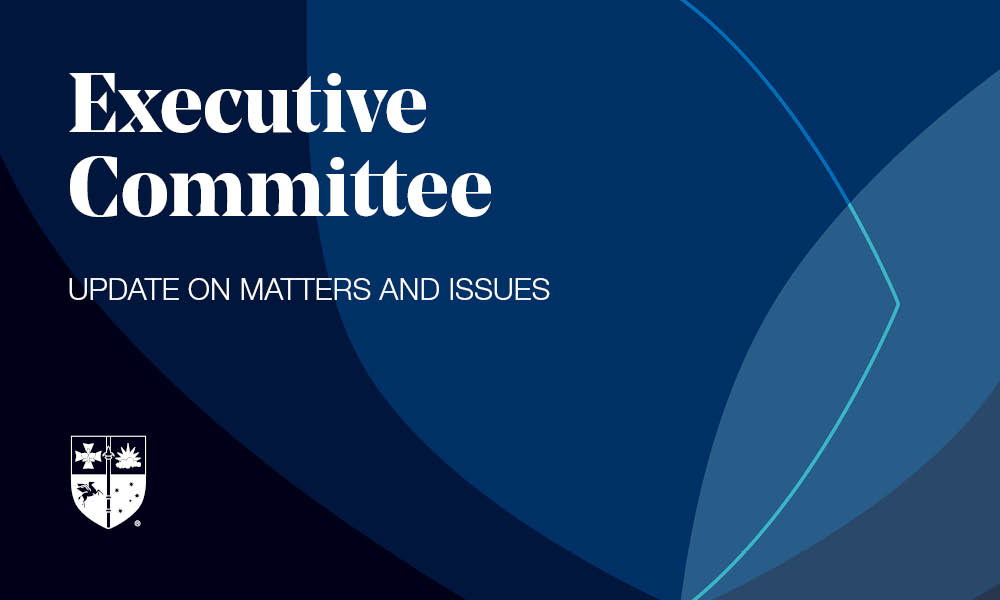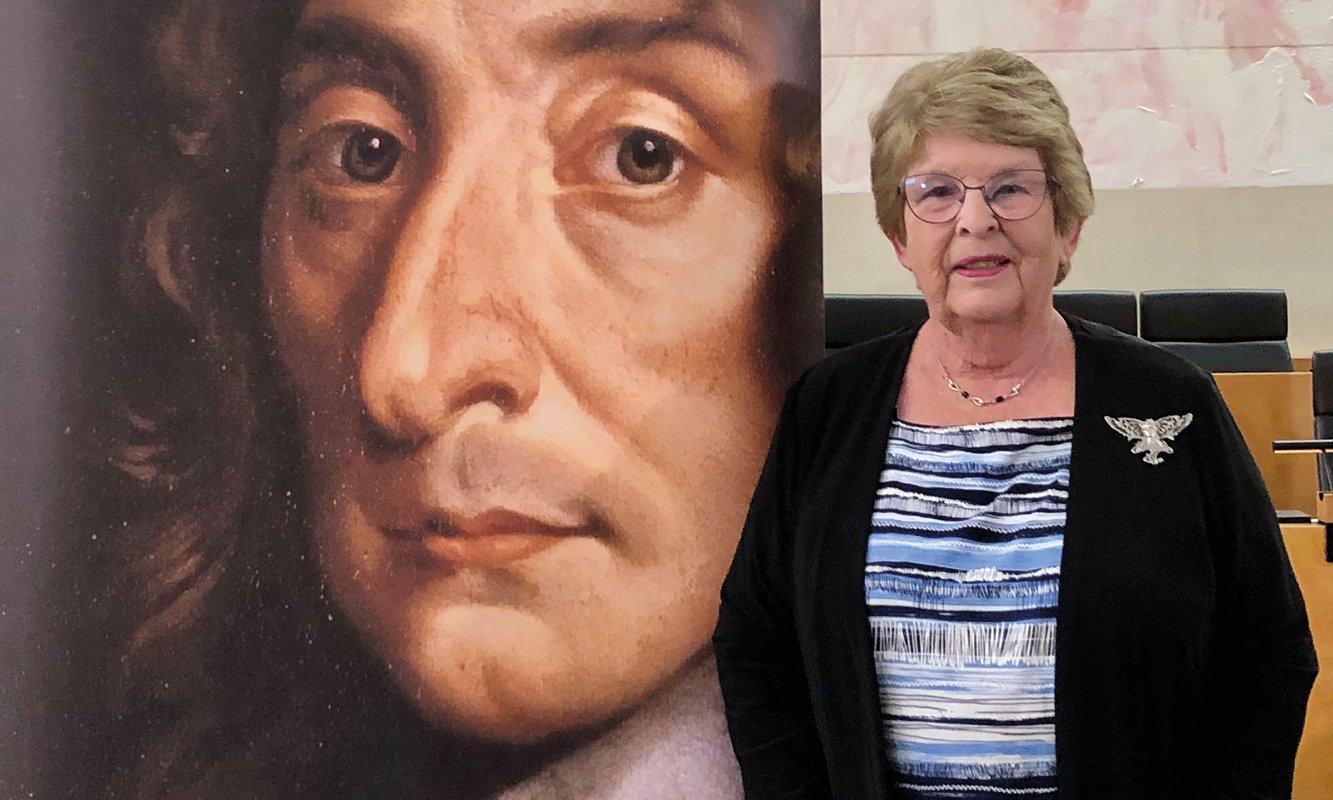QLS Council has delegated a range of decision-making functions under the Legal Profession Act 2007 (the Act) to Council’s Executive Committee.
The committee is chaired by the QLS President and includes a number of QLS Council members.
Decisions made by the committee include amending, suspending, cancelling and refusing to renew or grant practising certificates. These decisions require the committee to consider whether the person is fit and proper to hold the certificate. The committee also makes decisions in relation to external intervention into law practices (for example, by appointing receivers).
The committee does not deal with conduct complaints, which are within the jurisdiction of the Legal Services Commission, nor does it have an investigative function. Matters come before the committee upon submission from the Society’s Regulation division.
The Society and the committee adhere to the rules of natural justice and sound administrative decision-making, including by giving practitioners the opportunity to provide the committee with a response to Regulation’s submission before decisions are made.
Many types of decisions made by the committee are reviewable in the Queensland Civil and Administrative Tribunal by way of merits review.
A very broad range of matters can be taken into account by the committee when it is deciding whether a person is, or is no longer, fit and proper to hold a practising certificate and whether a certificate should therefore be granted or refused, suspended, amended or cancelled. Some relevant matters are discussed briefly below.
The Executive Committee will be providing brief quarterly notes regarding trends or themes emerging in the types of matters coming before the committee.
Legal Practitioner Directors of ILPs – don’t risk your practising certificate as a ‘hologram’ director
The Executive Committee has considered a number of matters in which legal practitioner directors (LPD) of incorporated legal practices (ILP) have not taken proper responsibility for the affairs of the law practice, effectively allowing other people (including non-lawyers) to run the practice.
ILPs require an LPD to operate and may seek out a practitioner with an unrestricted practising certificate to satisfy that requirement. While it may seem attractive to enter into an arrangement to become a LPD while taking on few day-to-day responsibilities, the consequences can be dire.
Regardless of the arrangements between the LPD and any other person involved with the ILP, LPDs are responsible for the management of the legal services provided in Queensland by the practice.1 LPDs have obligations above and beyond the professional obligations applicable to all practitioners, including to ensure that law practices have appropriate management systems and to prevent and/or remedy breaches of professional obligations resulting from the provision of legal services by the practice.2
Demonstrated failure to comply with the obligations of an LPD will raise a question about whether the practitioner is fit and proper to retain their practising certificate. The committee has cancelled practising certificates in these circumstances.
The QLS Ethics Centre Information kit about ILPs addresses LPDs’ obligations. Practitioners should also familiarise themselves with amendments made to the LPA in 2020 in relation to ILPs.
External examination of trust accounts
The Executive Committee often sees matters where law practices have not complied with the Act’s requirements regarding external examinations of trust accounts. A common example is failure to lodge external examination reports within the time required by the Act.
If a person has contravened the Act or a law about trust accounts, that is a matter the committee takes into account when considering whether a person is fit and proper to hold a practising certificate.3
Principals of law practices should remind themselves of their obligations under Part 3.3 of the Act, utilise the Society’s trust accounting resources and note that the due date for lodgement of external examiner’s reports to the Society is 31 May of each year.
Disclosure – at renewal and year round
Solicitors must disclose a broad range of matters to the Society. Some events require practitioners to notify the Society within a strict timeframe after the event occurs while other matters must be disclosed when applying for grant or renewal of a practising certificate.
Practitioners should familiarise themselves with the relevant provisions of the Act. This includes the suitability matters in section 9 and the matters in section 46, which must be disclosed on application for grant or renewal, and the statutory condition in section 57 regarding notification of certain charges and convictions within seven days.
Practitioners are also reminded that the following are show-cause events requiring the practitioner to provide information to the Society within strict timeframes under section 68:
- bankruptcy
- conviction for a serious offence
- conviction for a tax offence.
Learn more about show cause events.
Matters have come before the committee where practitioners have not disclosed convictions for serious offences. Lack of full and frank disclosure is a significant matter considered by the committee when deciding whether a practitioner is fit and proper to hold a practising certificate.
Professional indemnity insurance
Every law practice in Queensland must hold professional indemnity insurance that complies with the Queensland Law Society Indemnity Rule 2005.
Contravention of a provision of the Act regarding professional indemnity insurance is relevant to whether a person is fit and proper to hold a practising certificate.4 Practitioners should be particularly mindful when renewing their practising certificate that they are still covered by professional indemnity insurance.
Communicating with the Society
Coming into contact with the Society because of a suitability issue or show cause event may be stressful for practitioners. However, it is important that practitioners respond promptly and respectfully to Society staff. Taking a combative attitude or ignoring timeframes for responses will not assist in resolving the matter.
Practitioners are reminded of rule 43.1 of the Australian Solicitors Conduct Rules which requires a solicitor to be open and frank in their dealings with a regulatory authority (subject only to their duty to the client).
In some instances, the manner in which a practitioner deals with the Society may go to their character, including as it relates to their level of candour, remorse and insight, and therefore relevant to the committee’s consideration of their fitness to hold a practising certificate.
Footnotes
1 Subsection 117(2) of the Act.
2 Subsections 117(3) and 117(4) of the Act.
3 Section 46 and s9(1)(l) of the Act.
4 Section 46(2)(f) of the Act.









Share this article